 |
 |
 |
| Volume
3 - Issue 5 MAY 2005 |
|
Aristotle
was born in 384 BC in Macedonia, Northern Greece. His father, Nicomachus,
was court physician to Amyntas III, the king of Macedonia and grandfather
of Alexander the Great. While Aristotle was 17 years old, his father
died and he was sent to the Academy of Plato at Athens in 367 BC.
He studied there for 20 years under his revered teacher absorbing
the essence of his teachings, which we can see reflected in his
works. Aristotle made use of the basic ideas and terminology of
Plato, Socrates and the other philosophers before him. Aristotle
left Athens after Plato's death and travelled for 12 years. |
This reminds us of what Swami often says: "Education is for life, not for a living". Alexander was taught by Aristotle that the day a king did not serve even one of the citizens of his country was a day lost. When a day passed without an act of service, Alexander used to say: "Today I did not reign, for I did not do anything good". When nearing
50 years of age, Aristotle returned once again to Athens. There,
he established a spiritual institution which was named "Lyceum"
after a nearby temple dedicated to the Greek god Apollo. During
the next 12 years he organized it as a centre for speculation and
research in every field of scientific and philosophical inquiry
and gave lectures on a wide range of relative topics. He died from
a stomach illness at the age of 63. |
|
|
“Happiness
is among the things that are valuable and perfect. It is the first
principle, because it is for the sake of happiness that we do everything
else; and the first principle and cause of all goods - it is something
priceless and divine” (1102a, 1-5) The word Logos
is of fundamental importance in ancient Greek Philosophy.
Logos is the faculty of discrimination, what we very well know as
Buddhi or Intellect, which discriminates between right and wrong,
truth and illusion, permanent and transient. It is our Conscience,
the Voice of God within. Logos is the epicenter of spiritual life,
the Divine, the knower of all beings ever present in the hearts
of all. “In
the beginning was the Logos and the Logos was with God, and the
Logos was God…And the Logos became flesh and dwelt among us."
(Gospel according to John, A1-14) "Human goodness consists in action with Virtue" (1098a, 18-19) Here again we
come across a second very important word: Virtue or Arete
in Greek. The whole book is actually a treatise on Arete,
Virtue. "Education, which originates from within has a sound basis and is permanent. It is referred to as Sathyam. A step higher than Sathyam is Ritam as proclaimed in the Vedas. Ritam transcends both good and evil. This is the one you really are, the Atma. How long can we lead a truthful and ideal life in the world without trying to discover Ritam?" |
This word is very ancient and is found in the Vedas again and again, as for example in the prayer: "May Mitra,
Varuna, Aryaman, Indra, Brihaspati and the all pervading Vishnu
be propitious to us and grant us welfare and bliss. Aristotle emphasizes
again and again that the characteristic human quality, the human
good - what we would call man’s Dharma, is to act
with Virtue-Arete-Ritam guided by Logos (Intellect).
This is a natural inherent state of man and not something that is
brought from outside. This is exactly the meaning of the Latin word
Educere, which is the root of the word Education. Swami
has emphasized this Latin root to point out that the real aim of
Education is a life that manifests Virtue and Character.
Aristotle says: "It is natural
then, that we call neither ox nor horse nor any other animal happy,
for none of them is capable of such virtuous action (guided by Logos).
For the same reason also, a child is not happy, for it is not capable
of such action, because of its age." (1100a, 1-3) The only kind of happiness,
which is permanent and lasting, is the happiness based on virtuous
acts. "For no function of man has so much permanence as
virtuous activities, which are more durable even than knowledge
of the sciences." (1100b, 14-16) "So, we should
consider happy the man who acts with perfect virtue throughout his
whole life" (1101a, 15-16). THE
DIVISION OF THE SOUL - KINDS OF VIRTUE "By human virtue
we mean not that of the body, but that of the soul; and happiness
also is an activity of the soul" (1102, 19-21). Of the irrational part one division is common to all living beings, men, animals and plants. This causes nutrition and growth and is the pranamaya kosa. There is also another division in the irrational part, which however has a connection with Logos. This contains impulses and desires and many times fights against and resists the Logos, and it moves in contrary directions. However, in the man with self-control, it obeys the Logos. This second element of the irrational part is the desirous element, which we may call lower mind. |
In the same way we may distinguish two divisions in the rational part: the one which is the Logos itself (Pure Intellect), and can be called Buddhi, Conscience, the Logos and also Constant Integrated Awareness. The other which is obedient to Logos, which we may call higher mind or practical intellect. The combination of the higher element of the irrational part (lower mind) and the lower element of the rational part (higher mind) is actually the manomaya kosa; mind and senses, which consists of thoughts, desires, impulses, emotions etc. According to this analysis, virtue, which is a function of the part with Logos, may be distinguished into two kinds. The one which is related with Logos or Intellect itself is called “intellectual virtue” and the one which is related with the part which is obedient to Logos, i.e. practical intellect, is called "practical virtue". Action is a word that Aristotle uses very often in his book. Right from the beginning he emphasizes that the aim of the whole treatise is action and not mere knowledge (1095a, 7-8). Swami also is a very demanding teacher and always reminds us that we have to act. He calls that practical knowledge, i.e. to put into practice the values, to act with virtues. “Education
is not mere knowledge but it must take you into action”. (Divine
Discourse, 20.11.2001) Aristotle says
exactly the same about ethical or moral virtue: “We are
made by nature to receive the virtues, but we become perfect by
habit (= ethos)”(1103 a, 26 – 28). According to Aristotle: "Nature first grants the potentiality and it is up to us to exhibit later the activity. Like in the case of the senses of seeing or hearing; for it was not by often seeing or often hearing that we got these senses, but on the contrary we had them before we used them, and did not come to have them by using them. So, we get the virtues by first exercising them, as happens in the case of the arts as well,… e.g. men become builders by building and guitar players by playing the guitar. In the same way, we become righteous by doing right acts, temperate (self-controlled) by doing temperate acts (self –controlling) and brave by doing brave acts.” (1103a 28-1103b) "We should therefore act righteously, because the state of character is shaped out of the kind of activities. So, it makes not a small difference, whether we form habits of one kind or of another from our very youth. On the contrary it makes a great difference, or rather all the difference”. (1103b, 27 – 30) Swami says:
“Skill the knowledge, not kill the knowledge” “The man who abstains from bodily pleasures and is happy with this is really a self-controlled, temperate man; while the man who is sad about it, is in reality a lover of pleasures, self-indulgent. Similarly, he who bears the difficulties patiently and in a good spirit is really brave, while the man who is pained is cowardly." (1104b, 6-10) Knowledge is the basis. That is why Socrates said that “nobody is voluntarily bad”. It is only because people do not know, that they do wrong. Knowledge > Right Choice > resolute action (determination) Of course along
with knowledge, action is of paramount importance:
MORAL
VIRTUE IS A STATE OF BALANCE "Virtue is an intermediate state relative to us, determined by Logos and by the wise man. It is a mean between two vices, one being the excess and the other being the deficiency". (1106b, 40 – 1107a, 3) Both of these extremities destroy virtues. “Excessive or defective exercise destroys the strength of the body, too much or too little drink or food destroys health, while that which is proportionate produces and increases and preserves it.” (1104a, 15-20) “Excess
and deficiency are characteristics of vice, while the mean (intermediate
state) is characteristic of virtue”. (1106b, 36-38) "The intermediate state is not an objective and absolute principle but relative to each situation and is determined by Logos or by a wise man." (1107a, 1-3) We may compare the excess with rajas, the deficiency with tamas and the intermediate, balanced state with sattva. The sattvic man, is the virtuous man. “It
is not an easy task to be virtuous, for it is not easy to find the
middle. Anyone can get angry or give or spend money; but to do this
to the right person, to the right extent, at the right time, with
the right motive and in the right way, that is not for everyone,
nor is it easy. Therefore goodness is rare and praiseworthy and
noble” (1109a, 26-33) “Choice
(Discrimination) is not found to irrational being (without Logos),
but desire and anger are. The uncontrolled man acts forced by desire,
but not with choice. On the contrary, the continent man acts with
choice, and not forced by desire. Desire is contrary to choice.
Desire is connected with what is pleasant or unpleasant, joy and
sorrow but choice is beyond pleasure or pain." (1111b, 13-20) “Fame
and blame all the same”. Swami speaks about two paths; sreyo marga, the path of virtue and goodness, which might be sometimes hard and unpleasant and preyo marga the path of pleasure, which might be sweet and charming in the beginning, but unfortunately it leads finally to pain and sorrow. And Aristotle concludes: “Man is by nature endowed with a spiritual sight, which makes him judge correctly and choose what is truly good… This greatest and noblest quality is not something that we can get or learn from another, but we have it as a natural quality.” (1114b, 7-13) FRIENDSHIP – LOVE
Friendship is the highest virtue and “it is most necessary in life. For without friends no one would choose to live, though he had all other goods.” (1155a, 1-4). "In poverty and in other misfortunes friends are the only refuge. It helps the young to keep from error; it aids older people by caring to their needs; it stimulates those in the prime of life to noble actions." (1155a, 10-15) Friendship is
a natural quality not only among men but among birds and animals.
Friendship is of paramount importance for society, because it is
a bond much more powerful than justice. Duty
without Love is deplorable True friendship
is one which is based on virtue and good character and not one which
is based on profit or pleasure. Among all kinds of friendship or
love, the love of parents to children is the strongest and the children
should serve their parents even more than their own selves. "We
should also give respect to older persons appropriate to their age,
by rising to receive them and offering seats for them." (1165a,
31-32) However, what does love of one’s own self mean? Who is this self? Aristotle clarifies this point in many passages. “Each
man’s self – man himself is the intellectual element
in him” (1166a, 18-19) As we have seen
so far this intellectual element that contemplates or thinks wisely
is not other than Logos, Buddhi, Conscience, Nous, the Intellect
which meditates on the things that don’t change, on the Being
itself. It is the Divine in man. So, according to Aristotle, man’s
real self is the divine self, Atma, Soul. Love of one’s own
self means love of the divine Self. Then man can truly love other
people as well. Then he has true friendship. That is why
"Happiness does not lack anything, it is something final
and self efficient, and is the end of all action" (1097b, 24-25
1176b, 4-6). This is already stated in the first book and now Aristotle
comes back to give a final answer to the initial question. Pleasure is so much superior and purer the higher it rises above the material level. Spiritual pleasure is much higher than the one derived from the senses. “Our
measure is virtue and the noble man. So, what is good for the noble
man is truly good. Therefore, real pleasures are those which the
noble man enjoys.” (1176a, 18-23) However, is
there a higher happiness than the one connected with noble and virtuous
activities, i.e. the one which is connected with the practical knowledge
or ethical virtue. As we have already said there is a part, which
is Logos itself or Nous, pure Intellect, which contemplates Truth
itself and is connected with the intellectual or pure spiritual
virtues like Wisdom and Divine knowledge (Theoria). This
part is the highest part in us. |
The (contemplative) activity of Nous is called Theoria (i.e. contemplation of Truth, meditation, Samadhi), which is the highest stage of spiritual life. In it man is blessed with the Darshan of the Lord. “Such a (spiritual) life is the highest for man. He does not live anymore as a common man, but as an owner of a divine spark… His life is divine and not a common human life. So, we must not follow those who advise us, being men, to think of human matters, and, being mortal, to think of mortal matters, but we must, so far as we can, make ourselves immortal and strain every nerve to live in accordance with the most valuable part of our being. For the divine element in us, even if it be small in bulk, it surpasses everything much more in power and excellence. Moreover, this divine element is man, since it is the more powerful and wonderful part of him. It would be strange then, if he were to choose not the life of himself but that of somebody else. And, as we said before, that which is one’s real nature is the best and most pleasant. For man, therefore, the life according to Nous is the best and most pleasant, since man is essentially Nous. This life is also the happiest.” (1177b, 31-1178a, 9) “He
who acts according to Nous and serves him is in the best state of
mind and most dear to gods. For gods delight in that which is the
noblest and most akin to them (i.e. Nous) and they reward those
who love and honour this most, because they care for the things
that are dear to them and act rightly and nobly. All these attributes
belong most of all to the wise. He, therefore, is the dearest to
gods and also the happiest. So, the wise is the happiest.”
(1179a, 28-39) Perfect happiness is attained through a life of wisdom and inner contemplation of Truth, along with virtuous activity in society. 'Know thyself',
was the heritage of Aristotle's Gurus. This is the core of all his
thoughts. Man has to cultivate the divine element in him and manifest
his latent Divinity (Educere), becoming one with God. Let us conclude with a small passage of Swami, which actually contains all the essence of Aristotle's teachings: "The
result of Right action (Karma) is purity of heart, leading to acquisition
of higher Knowledge (Jnana). The coming together of karma and Jnana
leads to supreme bliss. This is the ultimate goal of every human
being."
|
| Optimized for Netscape and Firefox. Best viewed in Internet Explorer - 1024 x 768 resolution. |
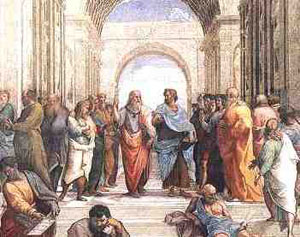
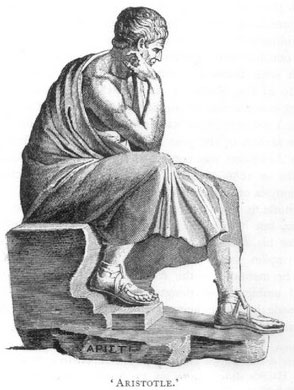 At
the age of 42, Aristotle was invited by Philip II, the king of Macedonia,
to tutor his 13-year-old son, Alexander, later known as Alexander
the Great. Alexander later said: "To my father I owe my
living, but to my teacher I owe my life”
At
the age of 42, Aristotle was invited by Philip II, the king of Macedonia,
to tutor his 13-year-old son, Alexander, later known as Alexander
the Great. Alexander later said: "To my father I owe my
living, but to my teacher I owe my life” 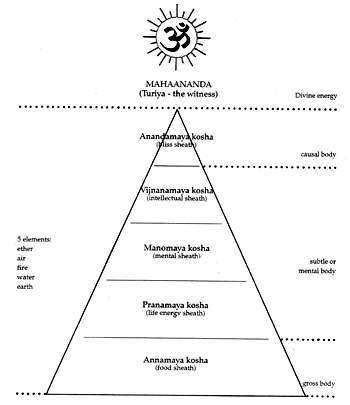
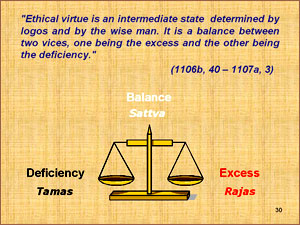
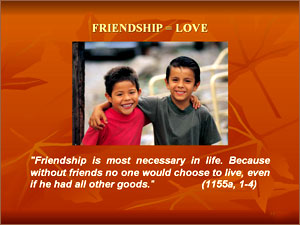
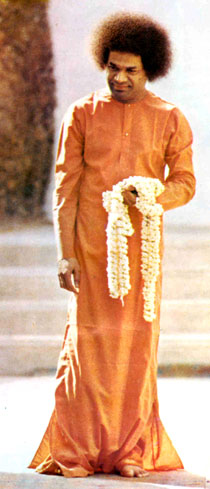 HAPPINESS
– ANANDA
HAPPINESS
– ANANDA